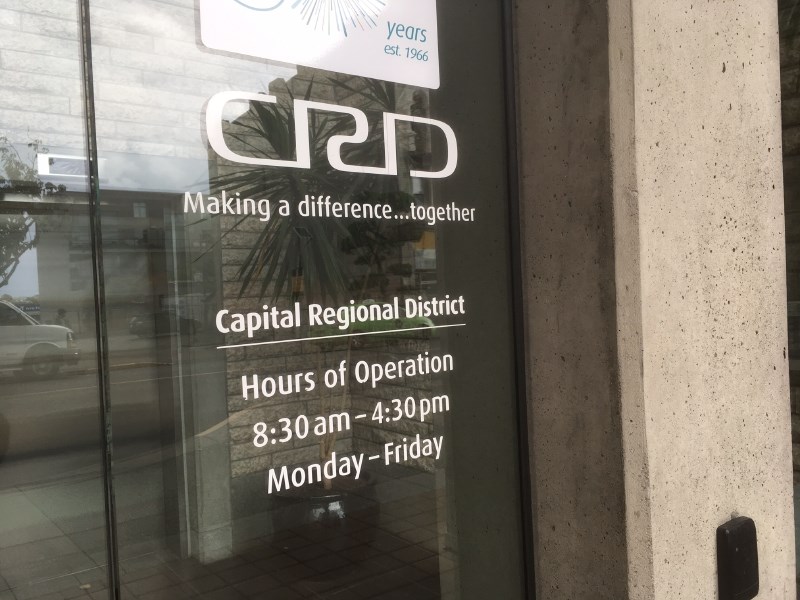Capital Regional District environment committee members have unanimously recommended that the CRD board declare a climate emergency and work toward being carbon neutral by 2030.
Committee members Victoria Mayor Lisa Helps, Saanich Coun. Ned Taylor and Sooke Mayor Maja Tait brought the recommendations to the committee on Wednesday.
Almost two dozen people implored committee members to take the action, arguing there is no time to delay.
“It’s the defining issue of my generation along with the other planetary boundaries that we are rapidly overshooting, such as loss of biodiversity and ocean acidification,” said Caleigh Aalders, a student at the University of Victoria.
Oil companies have known about the crisis since the 1970s, but chose to take the path of denial and delay, said Saanich resident Robbie Newton.
“We really are in an emergency,” Newton said. “We can’t wait the 12 years that the [Intergovernmental Panel on Climate Change] has mentioned as our end deadline. The time to start working on this is today — yesterday, actually.”
The IPCC in October said there was a 12-year window in which to limit warming to a maximum of 1.5 C, beyond which even half a degree will significantly worsen risks of drought, floods, extreme heat and poverty for hundreds of millions of people.
Committee members are also recommending the CRD board write all local governments in the region asking they also declare climate emergencies; seek up to $1 million in Pacific Institute for Climate Solutions funding; and write the provincial and federal governments asking for the power and authority to make the 2030 target achievable.
View Royal Coun. John Rogers addressed the committee, saying bold action is necessary. He said carbon credits won’t be enough to achieve climate neutrality. “Carbon credits won’t stop the ground from drying up, but it will make us feel good,” he said.
Planning must begin now for flood infrastructure in areas like the Gorge and the Portage Inlet, he said. “Flood management infrastructure in these areas are going to be critical because our roads — the Island Highway, Trans-Canada and Helmcken and probably even the E&N will be facing flooding issues and challenges,” Rogers said.
Metchosin Mayor John Ranns, while noting his council was supportive of the proposals, said he had to “inject a note of caution.”
“This initiative has implied but unidentified costs,” said Ranns, a member of the committee. Regardless of what is done regionally, he added, “this is a global issue and unless China and India stop building coal plants, all of the implied costs are going to be there, anyway.”
Ranns said it is incumbent on directors to ensure “that this isn’t just a licence to spend more government money like we seem to be very prone to do.”
Helps agreed there will be costs associated with climate action, but said: “I think the greater costs are the costs of inaction.”
Last week, Vancouver unanimously approved a motion declaring a climate emergency and directed staff to report back on opportunities to accelerate and update existing plans to achieve net zero carbon emissions before 2050.
It joins a growing list of cities — including seven in Australia, 11 in the United Kingdom, and seven in the United States — that have declared a state of emergency focused on resolving the climate crisis.



